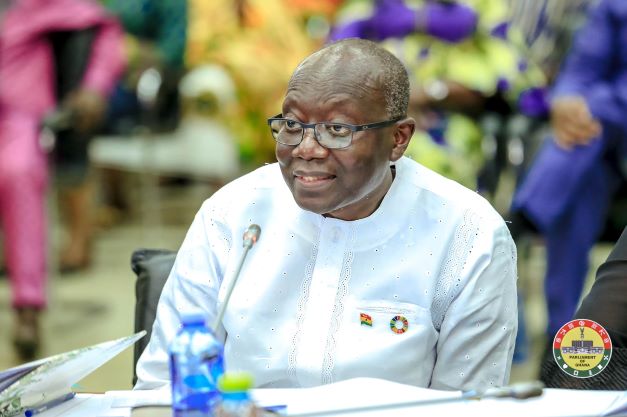The Domestic Debt Exchange Programme (DDEP) is gathering positive momentum as the Ghana Securities Industry Association (GSIA) has become the third financial sector player to agree to join the scheme
The Ghana Association of Banks and the Ghana Insurers Association had also agreed to participate in the programme for institutional bondholders.
The Ministry of Finance and the Association in a joint press statement, announced the terms agreed for participation by capital market operators.
The agreement entailed extending agreed improved terms with the banks to all GSIA members and the removal of all clauses in the Exchange Memorandum that empowers the Republic to, at its sole discretion, vary the terms of the exchange.
Similar to terms of banks, government has agreed to pay five per cent coupon rate for 2023 and a single coupon rate for each of the 12 new bonds to be issued, resulting in an effective coupon rate of 9 per cent.
Government has also committed to providing support to GSIA members impacted by the programme through the liquidity and solvency window of the GH₵15 billion Ghana Financial Stability Fund (GFSF).
The statement assured that collective Investment Schemes (CIS) and individuals who hold bonds in Trust Accounts with Securities and Exchange Commission (SEC) approved firms, will be offered any enhanced commercial terms agreed with, or exemptions granted to, Individual Bondholders.
GSIA said the agreement was necessary to restore market normalcy and confidence in the economy.
GSIA urges its members to seek all required internal approvals and clients’ consent to participate in the DDEP per the new terms in the updated Exchange Memorandum.
With this achievement, the Government of Ghana reiterates its commitment to concluding the DDEP in time with all other stakeholders.
External factors that negatively affected the economy
COVID-19, Russia-Ukraine war, soaring energy and food prices, higher interest rates, a strong dollar and a global slowdown negatively affected the economy.
Ghana seeking $3 billion loan
Ghana and the International Monetary Fund (IMF) have reached staff-level agreement on economic policies and reforms to be supported by a new three-year arrangement under the Extended Credit Facility (ECF) of about $3 billion.
But, the IMF has made it clear that the Board approval of the deal is contingent on a successful debt exchange programme.
Under the original plan of the domestic debt exchange programme, local bonds were to be exchanged for new ones maturing in 2027, 2029, 2032 and 2037, with annual coupons set at 0% in 2023, 5% in 2024 and 10% from 2025 until maturity.
Government later modified the terms including eight additional instruments to be created, bringing the total number of new bonds to 12, with one maturing each year from 2027 to 2038.
Following the inclusion of pension funds, outcry by labour and advocacy groups, led government to exempt pension funds from the programme.
Despite their initial exemption, individual bondholders have also been included in the programme.
Government is on a series of stakeholder engagements, to reach consensus with affected groups, on the terms of their participation in the Domestic Debt Exchange Programme.




